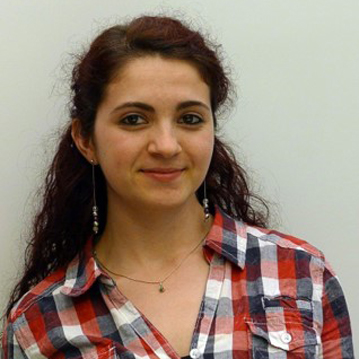
Andoniya Petkova
Doctoral student
Scientific interests
After synaptic formation, synapses undergo a process called maturation to gain their full functionality. Cell adhesion molecules, such as the postsynaptic Neuroligins, display synaptogenic properties and induce and regulate synapse maturation. Interestingly, loss or gain of function of cell adhesion molecules has been linked to neurodevelopmental disorders such as Autism Spectrum Disorders (ASD).
Humans have five Neuroligin isoforms: Neuroligin 1, Neuroligin 2, Neuroligin 3, Neuroligin 4X and Neuroligin 4Y (or Neuroligin 5).
The isoform Neuroligin 1 promotes synapse maturation in vitro as well as in vivo, and mutations in its gene may underlie some cases of ASD. However, many aspects of its function, and the function of the other Neuroligin isoforms remain unidentified.
I am using neuronal cell cultures and hippocampal organotypic cultures from rats and knock-out mouse models to study the transsynaptic signals involved in Neuroligin-induced synapse maturation, specifically by Neuroligins 1 and 2. I study loss and gain of function of proteins by using perturbation assays, live labeling techniques and protein overexpression. My work incorporates fluorescence imaging and image analysis of live and fixed samples, as well as Western blot protein analysis.
Bio
- 07/2013 – present MD project, University of Göttingen
- 10/2007 – 01/2013 Study of Dentistry, University of Göttingen (State Exam 06/2013)
Publications
- An Optical Assay for Synaptic Vesicle Recycling in Cultured Neurons Overexpressing Presynaptic Proteins
Riemann, D., Petkova, A., Dresbach, T., Wallrafen, R.
J. Vis. Exp. (136), e58043, 2018, doi: 10.3791/58043